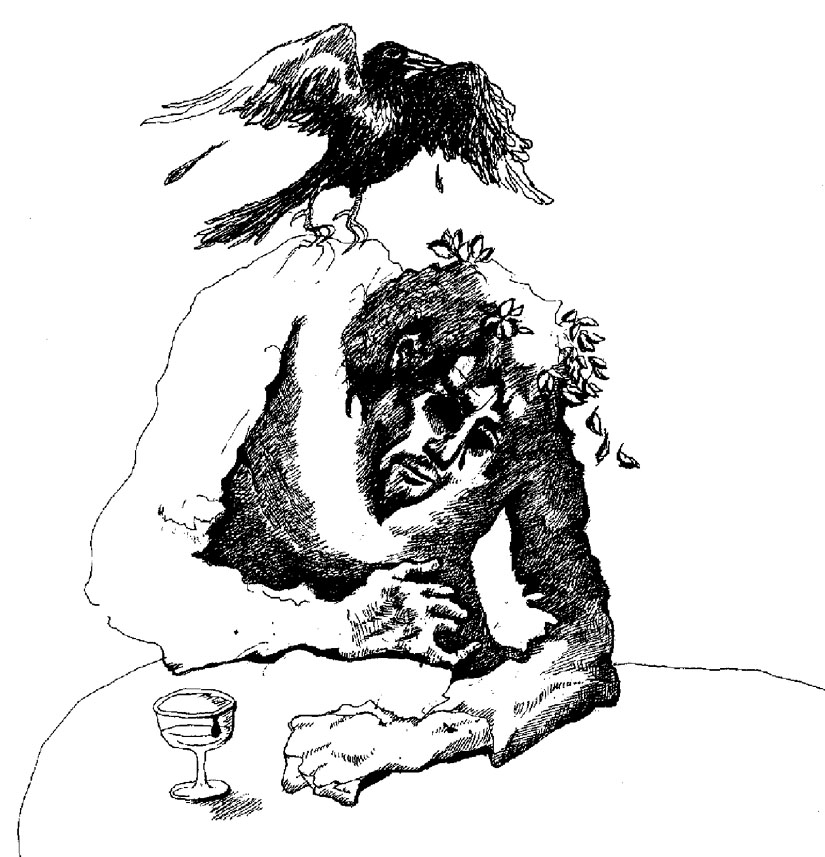Short Story by Jack Bragen
I was frantic to find a parking space. The “overload” light on the dashboard of my aging vehicle was flickering. I was pushing the aircar too hard. I finally spotted a vacant spot a good five blocks from the State of California Department of Euthanasia — the Pleasant Hill office, where I had an appointment and was late.
Another vehicle almost got my parking spot, but I had slammed on the accelerator pedal so much that I could barely get a safe landing. I feared the landing legs would break, but they didn’t, albeit the impact jerked my head.
I looked at my timepiece: I was already fifteen minutes late. I scrambled out of the vehicle, slammed its door, and took off in the fastest walk I could manage. My lungs hurt and I could hear myself wheezing, from decades of breathing thickly polluted air.
Gasping, I reached the front entrance. I paused to get my breath before stepping in.
A uniformed man behind thick glass projected impatience. I immediately spotted a number of disintegrator guns built into the walls. I then realized I stood atop a steel grating that would allow for easy, vacuum-powered disposal of my gaseous and liquid remains, should it go that way.
The man behind the glass said one word: “Payment.”
I pulled my payment box from my shirt pocket. “How much?”
“Put your box in the drawer.”
I hesitated, and the officer’s hand hovered over a lever. I feared I was about to be summarily “euthanized” should I ask any more questions or hesitate any longer. I quickly put my payment box into the stainless steel drawer.
The officer pulled the drawer to his side of the glass, took my payment box and plugged it into a port. I could hear my payment box making a particular chime, a sound you never wanted to hear. It meant I had become overdrawn.
This meant that a massive amount of money had been transferred — over 100,000 payment units — my life savings and more.
“Shit,” I said, involuntarily.
I saw a faint smile flicker momentarily across his face that barely broke through a decided lack of expression. “You were not invited to speak.”
The man behind the glass put my now worthless payment box back into the stainless steel drawer and slid the drawer out to me. I took it and put it back into my shirt pocket.
I would be unable to make my mortgage payment, buy food, or even buy fuel for my aircar. My knees began to feel wobbly.
The man stared at me. He didn’t say anything, and I dared not utter a word. This continued for a good five minutes. I didn’t dare look him in the eye.
“You’re in phase two,” he said. “Go through that door.” He pointed to the left.
The door was stainless steel and wasn’t open. The man behind the glass pointed. I walked up to the door and it opened. I stepped through, and it slammed shut behind me with a resounding clash. I was in a narrow hallway with several doors along it. One of the doors opened, and I stepped through. A woman sat behind an ornate desk that had binders, loose papers, a phone, and a Gumby figurine on it.
“Thank you for your patience,” she said. “This won’t take long; just a few questions…” I was caught off guard by the woman’s friendliness. I had expected another very mean person. “Take a seat,” she said. I sat and I felt about ready to fall apart. “How old are you?” she asked.
I replied, “I just turned 60, but I assure you I am in excellent health. I need little or no medical attention. I will not be a burden on society, and I can work if I have to.”

“Are you signed up to be an organ donor?”
“No. Is that relevant?”
“Would you be willing to sign a paper now? You could save the life of a very important person.”
I replied, “I would rather not.”
The woman paused and keyed something into her computer. “Next question: if you become euthanized, do you have any preferences or last requests?”
“I was hoping that wouldn’t happen.”
“Mr. Williamson, I’ll be frank. Our planet has limited resources, and life is on the verge of extinction. Our planet cannot support extra people. We have to get our numbers down.”
I said, “I can perform. I am a contributing member of society. I’ve done a lot of things…” I realized my voice had begun to sound desperate. I stopped mid-sentence. I began to sob. “Please…”
The woman handed me a box of tissues. “It’s okay, Mr. Williamson.”
I regained composure and could feel a trace of anger. “Okay, then,” I said. I paused, blew my nose in a wad of Kleenex, and cleared my throat. “Can I bribe you?”
The social worker, euthanasia worker, or whatever you want to call her, abruptly had a light in her eyes. “You have already transferred all of your assets to us.”
I replied, “Would you take a used aircar in good running condition?”
The social worker paused. “My son needs a first car.”
I said, “Consider the car his.”
We shook hands. The social worker escorted me out a secret door. We walked to my vehicle, and I handed her the key fob.
“Thank you,” I said, and started walking. Where I was headed I didn’t know.
The End
